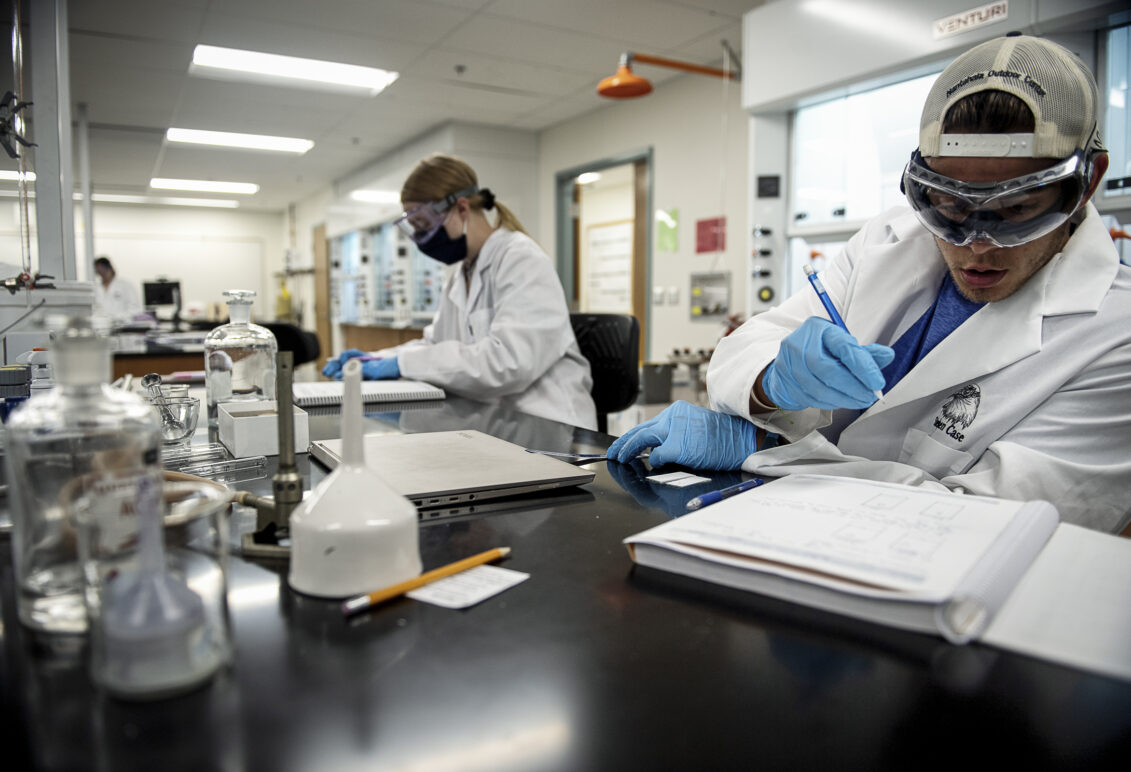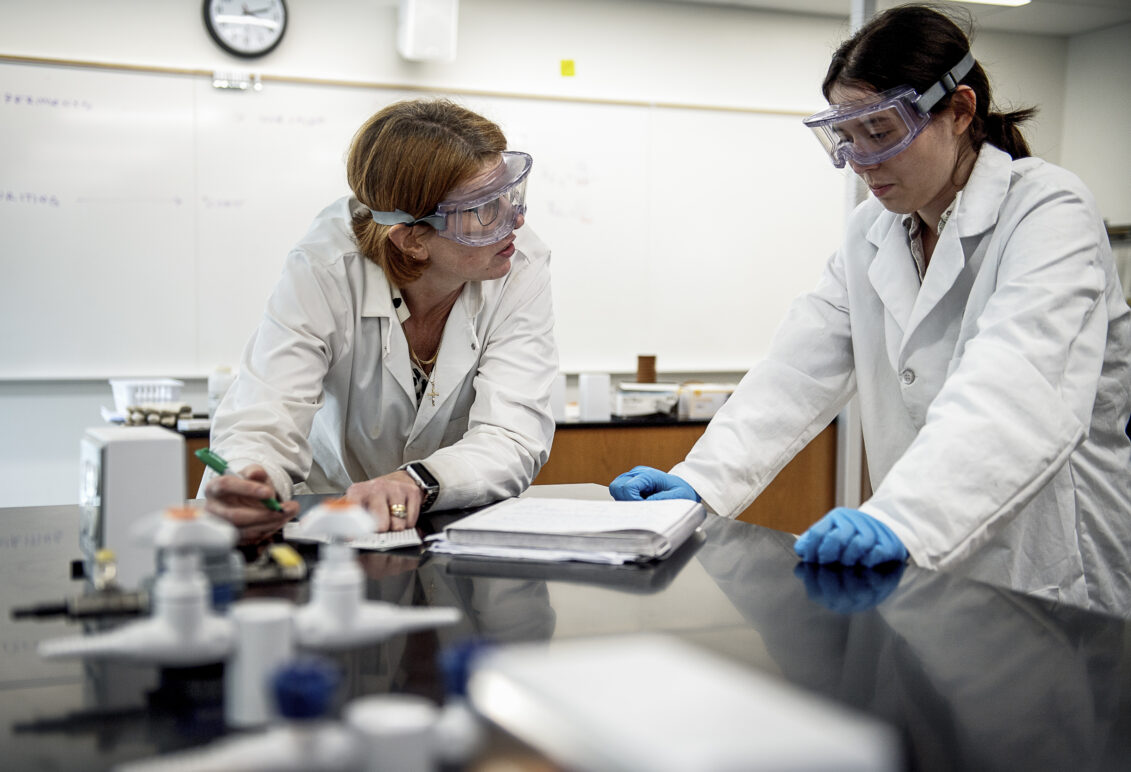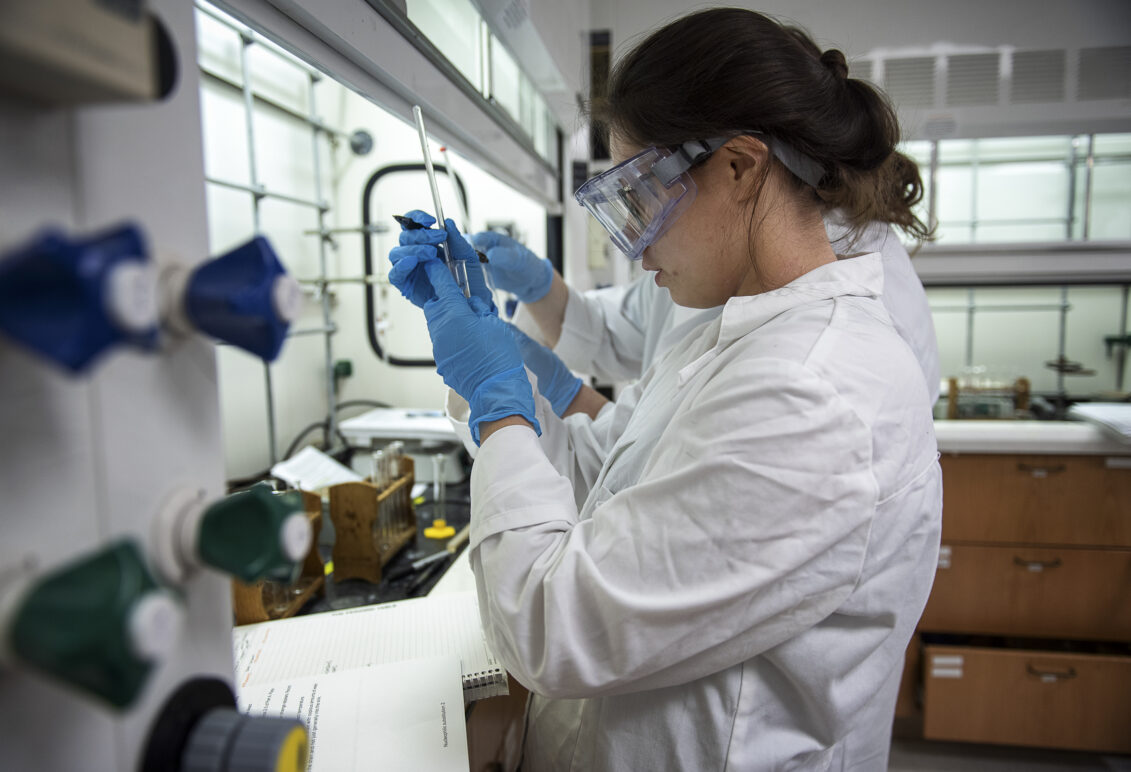What functions sustain life?
Major in biochemistry at the University of Mary Washington and you’ll come to understand living organisms, starting at the molecular and atomic levels. Challenge yourself with such courses as organic chemistry, bioinformatics, the biology and biochemistry of proteins, physical chemistry and more, then apply your knowledge through research and internships. As you discover where your scientific passions lie, you’ll pave your path to a career in medicine, dentistry, nutrition, agriculture, environmental science, or a field you create for yourself.
Degree Awarded
Students majoring in Biochemistry who complete all requirements earn the degree of Bachelor of Science (B.S.) in Chemistry.
Areas of Study
In the UMW biochemistry major, which you will pursue through the Department of Chemistry, you’ll take chemistry, biology, and physics as well as biochemistry lectures and labs. If you choose, there are electives in nutrition and metabolism, the biology of cancer, biochemistry of proteins, and more.
Career Opportunities
A biochemistry degree is great preparation for a career in dentistry, medicine, veterinary medicine, nutrition, and more. For some, it leads to entry-level careers in medicine, agriculture and the environment. Because of the transferable and highly employable skills you develop during your studies, you’ll have the choice to pursue careers outside of science as well.
Internships
Students are encouraged to pursue research and internship opportunities with such employers as the National Institutes of Health, the National Science Foundation, and the American Chemical Society. Learn more about UMW internships in chemistry, some of which are specific to biochemistry.
“I just feel like that’s the place where I can help the most people, people who are facing extremely slim odds of making it through their illnesses. … I feel that’s my calling.”
Pursuing graduation with departmental honors in biochemistry requires a 3.25 grade-point average in your chemistry courses and a 3.0 overall GPA. You’ll complete an independent research project, then write and defend a thesis. Students pursuing department honors register for Chemistry 491 for four credits in each semester of the senior year.
To receive a bachelor of science degree in biochemistry, you must earn 48 credits from the disciplines of biology and chemistry. You will also need to complete the introductory physics sequence and calculus I and II. You may choose electives tailored to your interests, such as nutrition, cancer research, or others to prepare you for future endeavors.
Each year, the department awards two UMW Foundation research-focused scholarships (Mahoney and Rodgers fellowships) and two more general scholarships (Cook and Crissman scholarships). These are awarded annually on the basis of merit and, in some cases, financial need. In addition, there are three other scholarships that the department offers on a rotating basis with the other science departments (Cope, Gill, and Rimnac scholarships).


